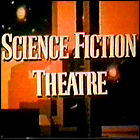 The tenth episode of the syndicated science fiction Science Fiction Theatre airs on stations across the U.S. Hosted by Truman Bradley, the episode stars Barbara Hale and Hugh Beaumont.
The tenth episode of the syndicated science fiction Science Fiction Theatre airs on stations across the U.S. Hosted by Truman Bradley, the episode stars Barbara Hale and Hugh Beaumont.
This series is not fully chronicled in the LogBook. You could join theLogBook team and write this guide or support the webmaster’s efforts to expand the site.

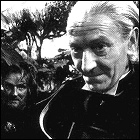 The
The 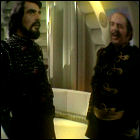 The
The 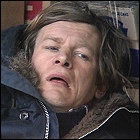 The
The 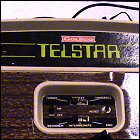 Coleco, a toy company best known for its air hockey tables, releases its first video game console, the Coleco Telstar. A self-contained unit capable of playing three variants of video tennis, Telstar retails for roughly half the price of Atari’s Pong console, and Coleco sells over a million units of Telstar in various guises and case styles through the end of the decade. In the early 1980s, Coleco begins development of its own programmable, cartridge-based successor to Telstar, which will reach the market in 1982 as Colecovision.
Coleco, a toy company best known for its air hockey tables, releases its first video game console, the Coleco Telstar. A self-contained unit capable of playing three variants of video tennis, Telstar retails for roughly half the price of Atari’s Pong console, and Coleco sells over a million units of Telstar in various guises and case styles through the end of the decade. In the early 1980s, Coleco begins development of its own programmable, cartridge-based successor to Telstar, which will reach the market in 1982 as Colecovision.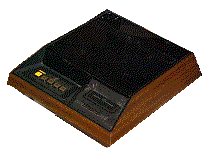 A major breakthrough in an industry that was previously dominated by expensive, bulky consoles that could only play a handful of games each, Fairchild introduces its Video Entertainment System, the first programmable video game system. Though it has several built-in games like its predecessors, the Fairchild system allows owners to add new games by purchasing “Videocarts” – roughly the size of 8-track tapes – containing additional games. Fairchild later renames its VES console Channel F to avoid market confusion with Atari’s VCS (Video Computer System), which doesn’t arrive on the scene until the following year.
A major breakthrough in an industry that was previously dominated by expensive, bulky consoles that could only play a handful of games each, Fairchild introduces its Video Entertainment System, the first programmable video game system. Though it has several built-in games like its predecessors, the Fairchild system allows owners to add new games by purchasing “Videocarts” – roughly the size of 8-track tapes – containing additional games. Fairchild later renames its VES console Channel F to avoid market confusion with Atari’s VCS (Video Computer System), which doesn’t arrive on the scene until the following year. ITV airs the 79th episode of the anthology series Tales Of The Unexpected. Andrew Ray guest stars.
ITV airs the 79th episode of the anthology series Tales Of The Unexpected. Andrew Ray guest stars. Springboard Software releases
Springboard Software releases 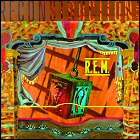 IRS Records releases
IRS Records releases 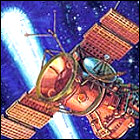 The landing module of the Vega 1 unmanned space probe arrives at the planet Venus, though some of its on-board experiment packages activate during descent, rather than activating after contact with the surface, and little data is returned. Thanks to a gravity assist from a close flyby of Venus, the Vega 1 “mothership” continues past the planet toward a 1986 rendezvous with Halley’s Comet.
The landing module of the Vega 1 unmanned space probe arrives at the planet Venus, though some of its on-board experiment packages activate during descent, rather than activating after contact with the surface, and little data is returned. Thanks to a gravity assist from a close flyby of Venus, the Vega 1 “mothership” continues past the planet toward a 1986 rendezvous with Halley’s Comet. ELO offshoot band Electric Light Orchestra Part II releases its
ELO offshoot band Electric Light Orchestra Part II releases its  The fourth episode of the adult-themed science fiction anthology series Perversions Of Science, based largely on stories published in Weird Science magazine, premieres on cable network HBO. Jeffrey Combs (Star Trek: Deep Space Nine, Star Trek: Enterprise, David Warner (Tron, Time Bandits), and Ron Perlman (Beauty & The Beast) guest star.
The fourth episode of the adult-themed science fiction anthology series Perversions Of Science, based largely on stories published in Weird Science magazine, premieres on cable network HBO. Jeffrey Combs (Star Trek: Deep Space Nine, Star Trek: Enterprise, David Warner (Tron, Time Bandits), and Ron Perlman (Beauty & The Beast) guest star.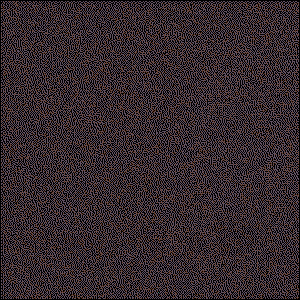 The comedy sequel
The comedy sequel  Sci-Fi Channel airs the 70th episode of the science fiction series Sliders, starring Cleavant Derricks, Kari Wuhrer, Robert Floyd, and Tembi Locke. Peter Jurasik (Babylon 5) guest stars in the fifth season premiere.
Sci-Fi Channel airs the 70th episode of the science fiction series Sliders, starring Cleavant Derricks, Kari Wuhrer, Robert Floyd, and Tembi Locke. Peter Jurasik (Babylon 5) guest stars in the fifth season premiere.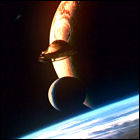 Sci-Fi Channel premieres the
Sci-Fi Channel premieres the 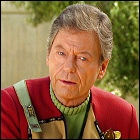 Actor DeForest Kelley, loved around the world for his portrayal of cranky-but-sympathetic Doctor Leonard “Bones” McCoy on Star Trek, dies at the age of 79 from cancer. A mainstay of western movies and TV guest roles since the 1940s, Kelley had first crossed paths with Gene Roddenberry guest starring in an episode of Boots and Saddles written by Gene; Kelley later starred as the lead in an unsold Roddenberry legal drama pilot, 333 Montgomery. He made enough of an impression that Roddenberry lobbied for him to be cast in Star Trek, though Desilu didn’t hire the actor for either of the pilot episodes. Kelley’s most recent appearance in the role of Dr. McCoy had been in 1991’s Star Trek VI: The Undiscovered Country; he declined to take part in 1994’s Star Trek: Generations, though a role had been written for him. (He had already handed the baton off to The Next Generation in an unannounced cameo appearance in that series’ pilot.)
Actor DeForest Kelley, loved around the world for his portrayal of cranky-but-sympathetic Doctor Leonard “Bones” McCoy on Star Trek, dies at the age of 79 from cancer. A mainstay of western movies and TV guest roles since the 1940s, Kelley had first crossed paths with Gene Roddenberry guest starring in an episode of Boots and Saddles written by Gene; Kelley later starred as the lead in an unsold Roddenberry legal drama pilot, 333 Montgomery. He made enough of an impression that Roddenberry lobbied for him to be cast in Star Trek, though Desilu didn’t hire the actor for either of the pilot episodes. Kelley’s most recent appearance in the role of Dr. McCoy had been in 1991’s Star Trek VI: The Undiscovered Country; he declined to take part in 1994’s Star Trek: Generations, though a role had been written for him. (He had already handed the baton off to The Next Generation in an unannounced cameo appearance in that series’ pilot.) The week-long national syndication window opens for the
The week-long national syndication window opens for the 
 Syfy airs the 72nd episode of the science fiction series Eureka, starring Colin Ferguson, Salli Richardson-Whitfield, and Joe Morton. Felicia Day (Mystery Science Theater 3000) guest stars.
Syfy airs the 72nd episode of the science fiction series Eureka, starring Colin Ferguson, Salli Richardson-Whitfield, and Joe Morton. Felicia Day (Mystery Science Theater 3000) guest stars.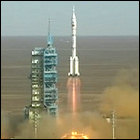 The Chinese manned space mission Shenzhou 10 lifts off, carrying taikonauts Nie Haisheng, Zhang Xiaoguang and Wang Yaping to the orbiting Tiangong-1 space laboratory module for a stay of over two weeks. This is the fifth manned flight in the history of the Chinese space program, and the second (and is expected to be the last) to visit Tiangong-1. A larger orbital station, Tiangong-2, is under development.
The Chinese manned space mission Shenzhou 10 lifts off, carrying taikonauts Nie Haisheng, Zhang Xiaoguang and Wang Yaping to the orbiting Tiangong-1 space laboratory module for a stay of over two weeks. This is the fifth manned flight in the history of the Chinese space program, and the second (and is expected to be the last) to visit Tiangong-1. A larger orbital station, Tiangong-2, is under development.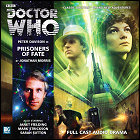 Big Finish Productions
Big Finish Productions  Big Finish Productions releases the
Big Finish Productions releases the